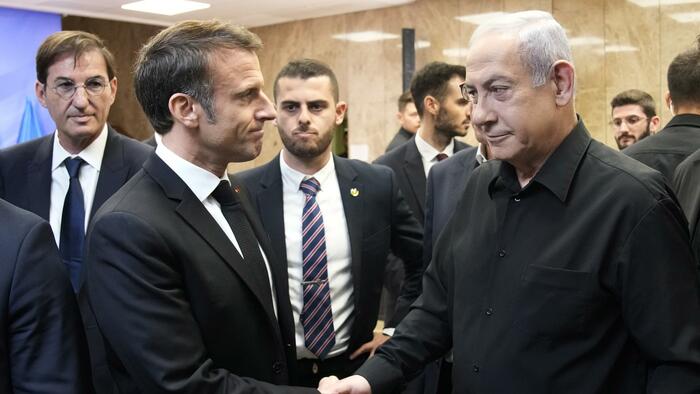On Saturday, French President Emmanuel Macron called for a halt to arms shipments to Israel due to the escalating violence in Gaza, advocating for a political solution in both the Gaza and Lebanon conflicts. During an interview with France Inter, Macron emphasized the need for a full arms embargo to create conducive conditions for dialogue and resolution. He disclosed that France has already suspended its arms deliveries to Israel. Macron expressed frustration over what he perceives as a lack of attention to his concerns regarding the ongoing military offensive, which he believes could jeopardize Israel’s own security. His comments highlight the complexities of the regional tensions and the significant role that international allies play in the conflict.
Simultaneously, Macron addressed the situation in Lebanon, where intensified airstrikes by Israel have raised alarms about a potential escalation of conflict. He appealed for restraint, asserting that the Lebanese population should not suffer further due to the ongoing violence, advocating against allowing Lebanon to descend into a situation akin to Gaza’s. Macron’s remarks signal a heightened awareness and concern for the humanitarian consequences of the conflict in the region, acknowledging the historical and cultural ties between France and Lebanon, which remain significant in the backdrop of this crisis.
In contrast, Israeli Prime Minister Benjamin Netanyahu strongly criticized Macron’s call for an arms embargo, deeming it a “disgrace.” He articulated that Israel is currently engaged in battles across multiple fronts—seven in total—against what he terms “the enemies of civilization.” Netanyahu portrayed Israel’s military actions as a defensive necessity against various groups and nations, including Iran, which he accused of leading a campaign against Israel through its proxies. This response underscores the ongoing tensions and deep-seated animosities that drive the conflict, illustrating how leaders mobilize sentiments surrounding national security to rally support.
Netanyahu’s reaction also reframed the discussion around the arms embargo, accusing Western leaders like Macron of hypocrisy for not addressing the actions of Iran and its regional influence. He questioned whether Iran had ever imposed an embargo on its proxy organizations, such as Hezbollah or the Houthis in Yemen, suggesting that the call for an embargo on Israel’s arms supplies signifies a double standard. The Israeli Prime Minister’s rhetoric indicates a call to solidarity among nations against what he frames as a broader threat posed by Iran, and urges a united front against adversaries who oppose Israel’s right to defend itself.
Further amplifying his sentiments, Netanyahu promised that Israel would continue its military operations “with or without their support,” emphasizing that the fight extends beyond the immediate conflict to the broader context of peace and security globally. This highlights an unwavering determination among Israeli leadership to pursue military objectives even in the face of international critique, maintaining that their mission is vital for not only Israel’s security but for the world’s peace. His statement is indicative of a hardline stance that sees no room for compromising support amid international calls for restraint.
The historical context between France and Lebanon adds another layer of complexity to the situation. France’s colonial past in Lebanon has fostered considerable historical ties, particularly with the Maronite Christian community, which historically held significant sway in Lebanese politics. Macron’s comments reflect a blend of historical responsibility and a current humanitarian perspective as he expresses concern for Lebanon’s future amid the crisis. This interconnected history underscores the potential for France to play a mediating role, navigating its colonial legacy while addressing contemporary realities that resonate through its foreign policy decisions regarding the Israeli-Palestinian conflict and regional stability.

